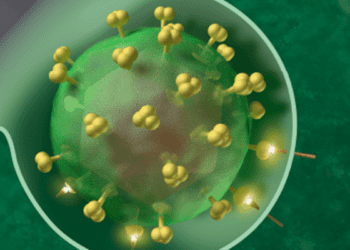High-dose Hepatitis B revaccination schedule improves serological response among patients with Human Immunodeficiency Virus
1. This randomized controlled trial (RCT) detected a serological response in significantly more patients who received high-dose Hepatitis B (Hep B) revaccination compared to those who received standard-dose following an initial failed Hep B immunization attempt.
2. After 1 year of follow up, more than double the number of patients in the high-dose group were considered Hep B immune compared to the standard-dose group.
Evidence Rating Level: 1 (Excellent)
Study Rundown: Individuals diagnosed with HIV are considered to be particularly susceptible to infectious diseases, including Hep B. The prevalence of Hep B is greater amongst HIV patients compared to the general population, and the disease course tends to be more aggressive in this group. For this reason, it is incredibly important that healthcare providers are diligent to ensure that their patients with HIV are immunized appropriately against Hep B, amongst other things. Given their impaired immune system, some patients with HIV may not respond to the standard Hep B vaccination schedule, and so revaccination of these individuals to ensure an adequate antibody titre is imperative. This double-blinded RCT sought to evaluate whether a high-dose versus standard-dose revaccination schedule provided optimal serological protection against Hep B amongst patients with HIV who had failed to respond to initial vaccination. 107 adult patients were randomized. The mean age was 47 years, and 81 patients (75.7%) were men. The majority (105/107, 98%) of patients were actively taking antiretroviral therapy and had a negligible HIV viral load at baseline (92/107, 86%). A serological response was detected in 72.0% of patients in the high-dose group and 50.9% of the patients in the low-dose revaccination group at the trial completion 4-8 weeks after the last vaccine dose. The mean antibody titre was also higher in the high-dose group (398.0 IU/L) compared to the low-dose (158.5 IU/L) group. After 1-year follow-up, 80% of those who had responded to the high-dose regimen still had a sufficient antibody titre, whereas only 39% of patients who had responded to the standard-dose regimen did. No significant adverse events were noted over the course of this trial. Vargas et al provide convincing evidence for the adoption of a high-dose Hep B revaccination schedule amongst patients with HIV who failed to respond to initial vaccination. Their trial demonstrates in all outcomes evaluated that a high-dose schedule provokes a more robust and durable immune response even in this vulnerable population. The randomized design of this trial as well as measures such as blinding and allocation concealment demonstrate a thorough understanding of bias in trial design and how it can be controlled for. Although the absolute number of patients in this trial was relatively small, it had a good retention rate (only two patients were lost to follow-up and intention-to-treat analysis was employed). A primary drawback of this study is the stringent exclusion criteria, which reduces the pragmatism of the findings given that patients with several common comorbidities were ineligible. Overall, the conclusions of this trial seem reasonable, and merit further study in a larger patient group in order to move towards improving practice.
Click to read the study in JAMA Network Open
Click to read an accompanying editorial in JAMA Network Open
Relevant Reading: Low prevalence of hepatitis B vaccination among patients receiving medical care for HIV infection in the United States, 2009 to 2012
In-Depth [Randomized Controlled Trial]: This trial was conducted at a single centre in Chile between 2013 and 2018. The high-dose Hep B revaccination schedule consisted of 3 x 40 μg recombinant Hep B vaccine administered intramuscularly after randomization, at 1 month and 2 months. The standard-dose schedule was the same, except 20 μg doses were administered each time. Hep B vaccine non responders were those who had an anti-HBs titre less than 10 IU/L at 4-8 weeks after their initial vaccination schedule was complete. Blocked randomization was completed in a 1:1 fashion using an algorithm run by a statistician who was blinded to patient allocation. The primary endpoint was a serological response defined as an anti-HBs titre greater than 10 IU/L, measured 4-8 weeks after the last dose of study medication received. Serum samples were collected and analyzed using standardized assays. The trial was underpowered compared to the projected sample size of 116 patients calculated a priori, although the power calculations were adjusted at an interim analysis. Imputation was used for any variables where more than 5% of the data was missing, otherwise analysis was conducted on an intention-to-treat basis. 36/50 (72%, 95% confidence interval [95CI] 62.7-80.6%) of the patients in the high-dose group achieved the primary outcome at trial completion, while 28/55 (50.9%, 95CI 41.4-61.3%) of the patients in the low-dose group did. This difference in response rates is considered statistically significant, with the odds of serological response 2.48 times higher in the high-dose group compared to the low-dose group (odds ratio 95CI, 1.02-6.10; P = 0.03). The difference between mean antibody titre (398.0 versus 158.5 IU/L) was also statistically significant, p <0.001. Finally, the difference in the number of patients who had a serological response at 1-year follow-up was significant (80% versus 39%, p = 0.01).
Image: PD
©2021 2 Minute Medicine, Inc. All rights reserved. No works may be reproduced without expressed written consent from 2 Minute Medicine, Inc. Inquire about licensing here. No article should be construed as medical advice and is not intended as such by the authors or by 2 Minute Medicine, Inc.







